Don’t wait for the Mayday!
Author: Christo Hudson, Salos Sunesis and The Black Box Approach
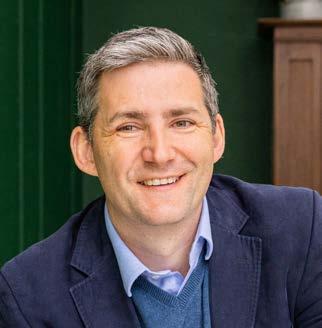
Christo Hudson spent 20 years as an airline Training Captain and black box investigator before his life unravelled. Losing his career brought a complete loss of identity and opened the door to a world he never knew existed. Today, he helps organisations unbox the conversations that matter most.
So often we tell people to reach out when they’re struggling. But the truth is, it didn’t work for me.
Not because I didn’t want help. But because I didn’t know how to ask. When you’re in that headspace, everything feels like noise. Your brain convinces you that you’ll be a burden. That no one really wants to know. That you should be able to handle it.
So, you stay quiet. You keep flyingeven when the engine’s on fire. In aviation, we don’t wait for the Mayday call. We’re trained to notice the signs early. The offhand comment. The blank stare. The change in tone. Because by the time someone says, “I’m not okay,” they’ve usually been unravelling for a while.
We’ve got to stop waiting for people to “reach out” - and start learning how to “reach in”. Not with solutions or scripts. Just presence. A genuine curiosity. A genuine sense that someone’s world matters.
It’s Time to Flush the Stigma About Male Incontinence
Offshore Safety Awards Winners 2025
We talk a lot about mental health in the workplace, but culture isn’t built in posters and coasters - it’s built in presence.
The text you send. The coffee you offer. The conversation you don’t avoid.
We don’t need to be perfect - we just need to show up and show them they matter.
Reaching in might just be the thing that stops someone from going under. If you’re worried about a colleague or a friend, say the thing, tell them you are worried about them and then just listen. You don’t have to “fix them” - you just need to be there.
If you’re struggling and need to talk, you can call Samaritans on 116 123 or text SHOUT to 85258 anytime, day or night.
Offshore and can’t call directly? Speak to a Medic - they can help you get in touch.

Quarterly Themes
Q4: OCT / NOV /DEC
Wellbeing and Work Environment
Dates for Your Diary:
Safety Rep Event
8 October > 9:00 – 16:00
Union Kirk, Aberdeen
Site Managers Event
9 October > 9:00 – 16:00
Union Kirk, Aberdeen
Wellbeing Event
5 November > 9:00 – 13:00
Beach Ballroom, Aberdeen
Q4: Human Factors Forum
20 November > 9:00 – 11:30
Annan House, Aberdeen
Hand Safety Event
2 December > 9:00 – 13:00 Beach Ballroom, Aberdeen
Wellbeing Webinar
20 November > 13:00-14:00 Online
Annual Quiz
14 December > 15:00 – 16:00 Online
Continuous Leadership Development Course (1 day)
30 Oct or 17 Dec > 9:00 – 16:30
Palm Court Hotel, Aberdeen
Safety Leadership Development Programme (2 days)
9 & 10 Dec > 9:00 – 16:30
Palm Court Hotel, Aberdeen
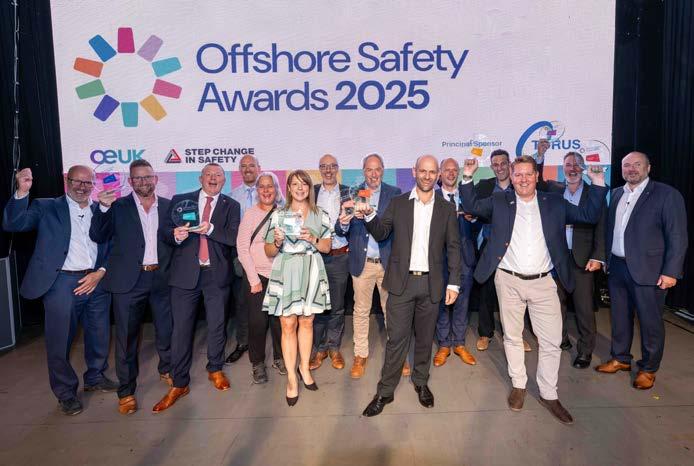
Congratulations to the Winners!



Held on 1st July at Aberdeen Beach Ballroom, the OSAs are an annual celebration of outstanding safety leadership and culture in the offshore energy sector. Sponsored by Torus and jointly organised by Step Change in Safety and OEUK, the event recognises individuals, teams, and organisations making offshore worksites safer every day.
The Winners…
Major Hazard Awareness (sponsored by CNOOC International)
Colin Deddis, Anasuria Operating Company
Wellbeing (sponsored by IntrospeXion)
Andrew Beckley, TotalEnergies & Steve McIntosh, Healthoutfit Ltd
Maritime Safety
Bryan Irvine, Anasuria Operating Company
Safety Representative of the Year (sponsored by OPITO)
Doug Walker, PBS by Ponticelli
Workforce Engagement (sponsored by Salos Sunesis) Adam Mason, PBS by Ponticelli
Sharing and Learning (sponsored by Spirit Energy)
Brian Innes, Stena Drilling
Offshore Safety Awards 2025
Decommissioning Safety
Brent Charlie Decommissioning Team, Shell
Site Leader
David Meade, Harbour Energy
Aviation Safety (sponsored by Swire Energy Services)
Andrew Cowx, Offshore Helicopter Services UK Ltd
Outstanding Contribution to Safety
Darren Sutherland, Borr Drilling / Mental Health in Energy
Introduction of Weight Limits for Offshore Workers
Why the limit?
• Maritime & Coastguard Agency (MCA) raised concerns: Search & Rescue winches may not safely lift anyone over 124kg.
• Safety and duty of care come first
A Weighty Issue
You may have already heard that there are some weight limits being introduced to the oil & gas workforce travelling offshore. We’ve got some more info on this heavy subject.
Under the Health and Safety at Work Act 1974, employers are legally required to protect employees and others. The PFEER (Prevention of Fire and Explosions, and Emergency Response) regs also specify that Duty Holders must make ‘effective arrangements’ to safely evacuate personnel from offshore installations.
Support Available:
Timeline:
Step Change in Safety Guidance for weight management & healthier living.

1st November 2025: Introduction & Awareness
• policy published
• employers communicate company-specific information



Average weight of winch paramedic & kit required = 124.3g
The policy:
• Clothed weight limit: 124kg (survival suits excluded)
• Around 5% of the offshore workforce currently exceeds the 124kg threshold.
Recently, the Maritime & Coastguard Agency (MCA) raised concerns that the certified maximum load of Search & Rescue winches would not safely accommodate personnel weighing over 124kg.
To address this, OEUK and industry partners are developing a safety policy introducing a clothed weight limit of 124kg for all offshore personnel (excluding survival suits).
To support our workforce, Step Change in Safety will soon publish new resources to support weight management and healthier living.
NHS
Better
Health – Lose Weight:
A 12-week plan with meal ideas, activity tracking, goal setting, a free app and printable PDF guide. www.nhs.uk/better-health/lose-weight/
Keep an eye out for communications from OEUK and your employer from 1st November 2025, when the policy will be published.
1st February 2026: Transition
• roll out programme
• workforce engagement
• reduced duration medical ceritifcates issued >115kg
• employers support worker weight loss
• medical examiners provide advice for workers 110-114.9kg
• medics review individual weights and share healthy eating advice

1st November 2026: Mandatory Implementation
• anyone >124kg is no longer allowed to travel offshore
• reduced-duration medical certificates 115-124kg

Wellness Series

Working offshore demands peak physical and mental performance. What you eat directly impacts your energy, concentration, and mood – critical factors for safety and productivity in challenging North Sea conditions.
Fuel Your Focus
Your brain needs steady glucose for concentration. Instead of reaching for sugary snacks when tired, choose complex carbohydrates like wholegrain cereals and vegetables. These provide sustained energy without the crash that comes from refined sugars. Regular meals containing carbohydrates ensure consistent energy levels throughout your shift.
Home or Away - Save 1,000 Calories This Christmas
The festive season doesn’t have to derail your health goals. With smart choices, you can enjoy a fantastic Christmas feast while saving over 1,000 calories and 70g of fat. These simple swaps let you enjoy Christmas while staying on track with your health goals – perfect for maintaining energy levels during busy offshore rotations.
Need more ideas? Get in touch!
Craig Sandilands Healthoutfit
Offshore Lead and Wellness Coach craig@healthoutfit.co.uk
Staying Healthy Offshore: Nutrition Tips for Peak Performance
Essential Nutrients for Offshore Life
Nutrient deficiencies can leave you feeling tired, weak, and mentally foggy – dangerous when working with heavy machinery or at heights. Key nutrients include:
Iron: Found in meat, fish, and leafy greens. Low levels cause fatigue and weakness.
B Vitamins: Essential for energy and mood regulation. Sources include meat, fish, eggs, and wholegrain cereals.
Vitamin C: Helps manage stress hormones. Aim for citrus fruits and vegetables.
Folate: Supports mental wellbeing. Found in green vegetables and beans.
Starters
• Choose melon or lowfat vegetable soup (under 50 calories)
• Avoid creamy tomato soup (100+ calories, 7g fat) or prawn cocktail with seafood sauce (300+ calories, 25g fat)
Main Course
Watching Your Weight?
Limited exercise options offshore make weight management challenging. Focus on:
• Choosing lean proteins over processed meats
• Limiting refined carbohydrates and sugary foods
• Staying hydrated – water acts as a natural appetite suppressant
• Including healthy fats from fish, nuts, and seeds
Smart Meal Choices
When faced with galley options, choose vegetable-based soups over creamy versions, opt for grilled over fried foods, and load up on vegetables. Remember: good nutrition isn’t just about weight – it’s about maintaining the energy, focus, and physical resilience needed for safe offshore operations.
• Go for white meat – saves 65 calories and 5g fat per portion compared to dark meat
• Trim fat from ham and skip bacon rolls – saves 185 calories and 14g fat
• Load up on vegetables but choose mashed over roast potatoes (half the calories)
• Use reduced-fat stuffing recipes
• Skim fat from gravy or use reduced-fat granules, or enjoy cranberry sauce instead
Pudding
• Downsize Christmas pudding and skip the brandy butter, cream, and sauce
• Choose reduced-fat custard on a small portion – saves 165 calories and 23g fat compared to medium portion with fresh cream
• Try lighter desserts like fruit mousse
• One mince pie plus cake slice = 460 calories and 18g fat!
Over 50% of UK men experience symptoms of urinary incontinence at some point in their lives
1 in 25 men aged over 40 experience symptoms
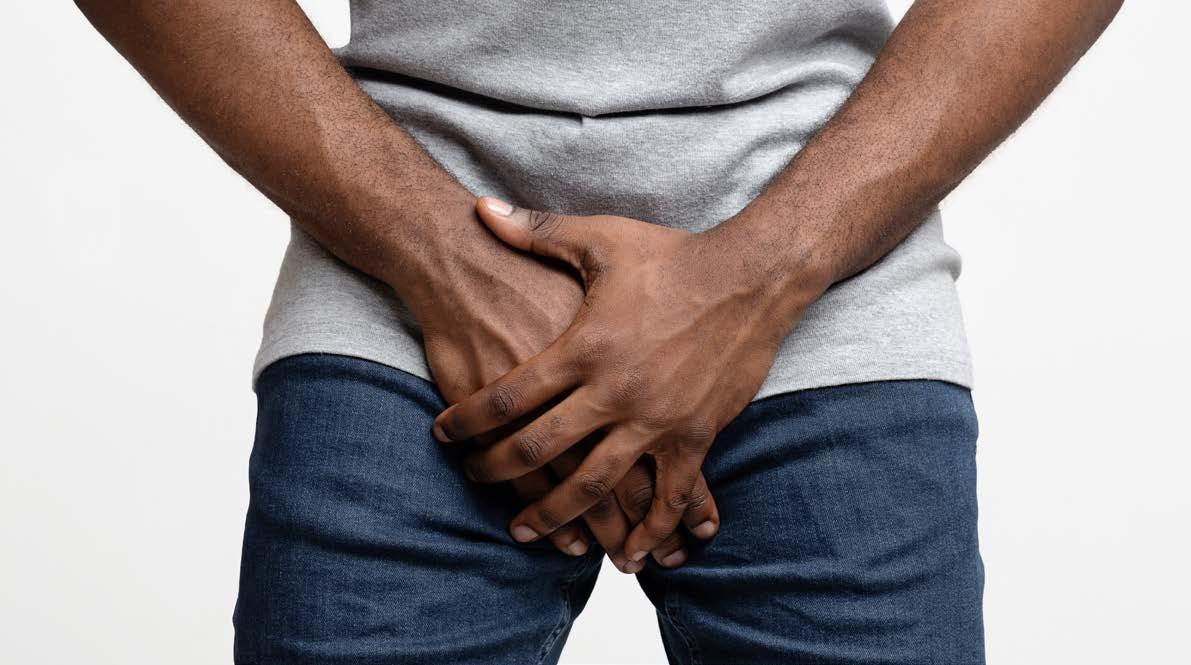
It’s Time to Flush the Stigma About Male Incontinence
Working in the energy industry means you’re tough, resourceful, and used to solving problems - but there’s one issue too many blokes keep bottled up: bladder leaks.
It’s not just a women’s health topic. More than half of UK men will deal with some form of incontinence in their lifetime. By 60, it’s as common as grey hairs. Yet many guys put up with it quietly, planning their day around the nearest loo or skipping social time with the crew.
Leaks can happen for lots of reasons: a bladder that’s a bit too lively, a sneeze that catches you off guard, an enlarged prostate, or even treatment after prostate cancer. None of this means you just have to live with it.
1 in 3 men aged over 65 experience symptoms
Nearly 8 in 10 men with incontinence feel anxious about leaving the house due to lack of public facilities
Small steps can make a big difference: Cutting back on caffeine or booze
Keeping active and trim
Quitting smoking
Pelvic floor exercises (yes, they work for men too!)
And there’s solid kit out there now - pads and underwear designed for men, discreet and comfortable, no “nappy” look. Your GP can also talk you through medication or other treatments if you need extra help.
If bladder leaks are affecting your life, don’t tough it out alone. Reaching out for advice isn’t weakness - it’s looking after yourself so you can keep doing the things you enjoy, at home and at work.

How Coaching Builds Resilience in the Energy Industry
Change is a constant in the energy industry. Ageing assets, decommissioning projects and the energy transition all bring uncertainty — and it’s natural for people to feel concerned about the future. But resilience isn’t about “toughing it out.” It’s the ability to adapt and stay safe, and coaching can help build that capacity every day.
Start with Psychological Safety
Resilience begins when people feel safe to speak up. Psychological safety — the belief that it’s okay to raise concerns without blame — allows teams to spot weak signals early and bounce back quickly.
Our New Look, Chosen by You
Article by Ethos Empowerment

Three Habits for Resilient Performance
1. Ask better, get better. Swap yes/ no questions for “TEDS” prompts: Tell me, Explain, Describe, Show me. These uncover hidden issues and encourage honest feedback.
2. Keep it adult and candid. Combine care with candour. By blending Transactional Analysis and Radical Candor, leaders create space for concerns to surface early. Calm, respectful conversations give people room to raise concerns early and sort them out before they grow.
3. Protect capacity. Overload leads to mistakes. Saying “no” with compassion helps teams maintain focus and reduce risk.
Use Coaching Moments at Every Stage
Resilient teams don’t just reflect after things go wrong — they build in coaching throughout the workflow:
Pre-briefs: Clarify intent, nonnegotiables and when to pause.
During: Confirm next steps and highlight “Stop the Job” triggers.
De-briefs: Compare plan vs. reality, identify what changed, and assign one improvement.
Even in times of major change, the workforce can adapt when change is communicated clearly and supported with the right time, tools and permissions. Coaching makes that possible, turning uncertainty into confidence and control.
In early September, we proudly unveiled a refreshed Step Change in Safety brand - as voted by our members and stakeholders.
This is more than a new logo and colours. It reflects who we are today and where we’re going.
Built on nearly three decades of industry collaboration, the brand honours our roots in oil and gas while embracing a broader workforce and the safety challenges of a changing energy mix.
Members asked for a modern, more inclusive identity - and the new design delivers. A redeveloped website, launching in October, will also make it easier to access tools, guidance and resources.
Thank you to everyone who shared their views and helped shape this collective step forward.
Weight Loss Injections Offshore
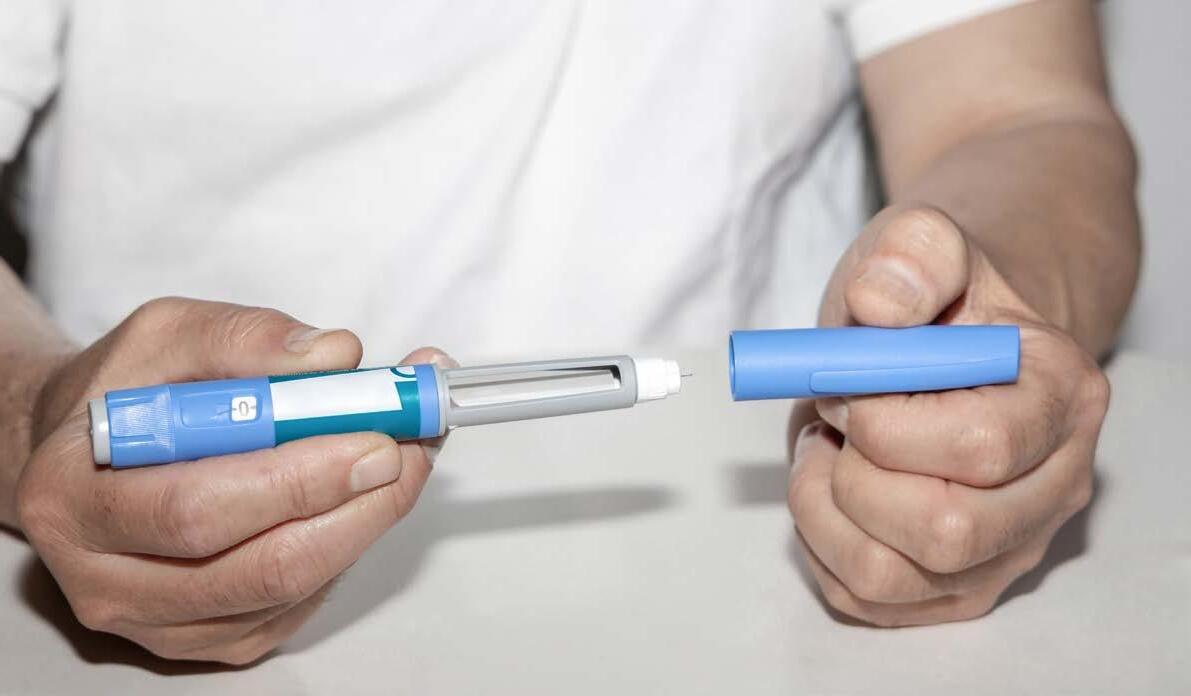
What You Need to Know...
Injectable weight loss medications such as Wegovy and Mounjaro have become increasingly popular among offshore workers - and it’s easy to see why. These treatments can lead to a reduction in body weight of up to 15–20%, delivering visibly significant results. In contrast, conventional approaches like diet and exercise are considered successful if they achieve a sustained 5% weight loss, a target that only around 1 in 5 people manage to reach.
However, the growing use of these medications has prompted concerns around potential side effects, particularly in offshore environments. In response, the OEUK medical advisor has issued guidance to registered OEUK medical examiners to ensure their safe use offshore.
Workers using injectable weight loss medications may still be issued a standard OEUK medical certificate provided:
• They present evidence of a valid prescription to a registered OEUK medical examiner
• At least three days have passed since their second injection
• They are not experiencing any side effects
If these conditions are met, the registered OEUK medical examiner will issue a confirmation letter which should be shown to the offshore installation medic, verifying that the medication has been reviewed and deemed safe for offshore deployment.
Dr Louise Slaney, lead author of the guidance, explained the rationale:
“ “
Over the past year, we have observed a marked increase in offshore workers using these medications with positive outcomes. However, as with any treatment in the offshore environment, clear guidance is required to ensure safe use. Consistency is also vital, as differing policies between operators can create uncertainty for both staff and contractors. It is equally important to confirm that medications are sourced legitimately, given reports of counterfeit products on the market. Encouragingly, these treatments appear effective in supporting weight loss, and to date we have not seen significant adverse effects.
Drug Testing Considerations
Could weight loss injections affect drug test results?
While these medications are not typically flagged in standard drug screenings, it’s always best to check in advance. If you’re prescribed any new medication, request a meeting with a registered OEUK medical examiner to confirm its suitability for offshore use. Drug testing policies vary by employer and installation operator, so a registered OEUK medical examiner may need specific details to provide accurate advice.
Across
2. Fun activity to win prizes for tickets bought (6)
6. Unwanted or agressive behaviour in the workplace (10)
8. Substance that builds and repairs tissues, often purchased in powder form (7)
11. The body’s framework, assembly of bones (8)
12. Being thoughtful and considerate towards others (8)
13. Practise of focussing on the movement, often used to reduce stress (11)
The
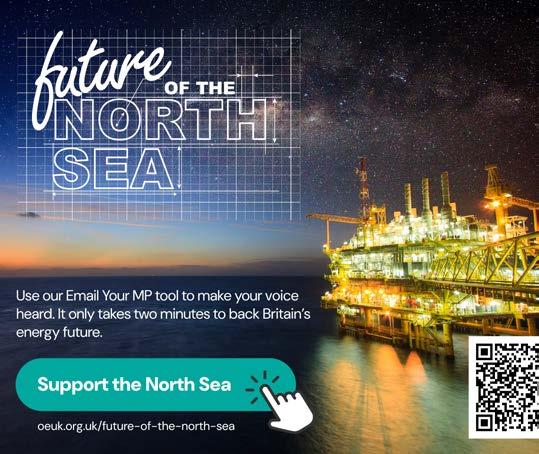

Down
1. Practice which combines physical postures, breathing exercises and meditation (4)
3. Regular movement to strengthen the muscles and heart (8)
4. Natural sugar found in fruit (8)
5. A feeling of being overwhelmed by work tasks home situation or other influences (6)
7. The practise of avoiding specific substances or practices (10)
9. State of feeling positive and hopeful about the future (8)
10. A feeling of constant exhaustion, burnout or lack of energy (7)
